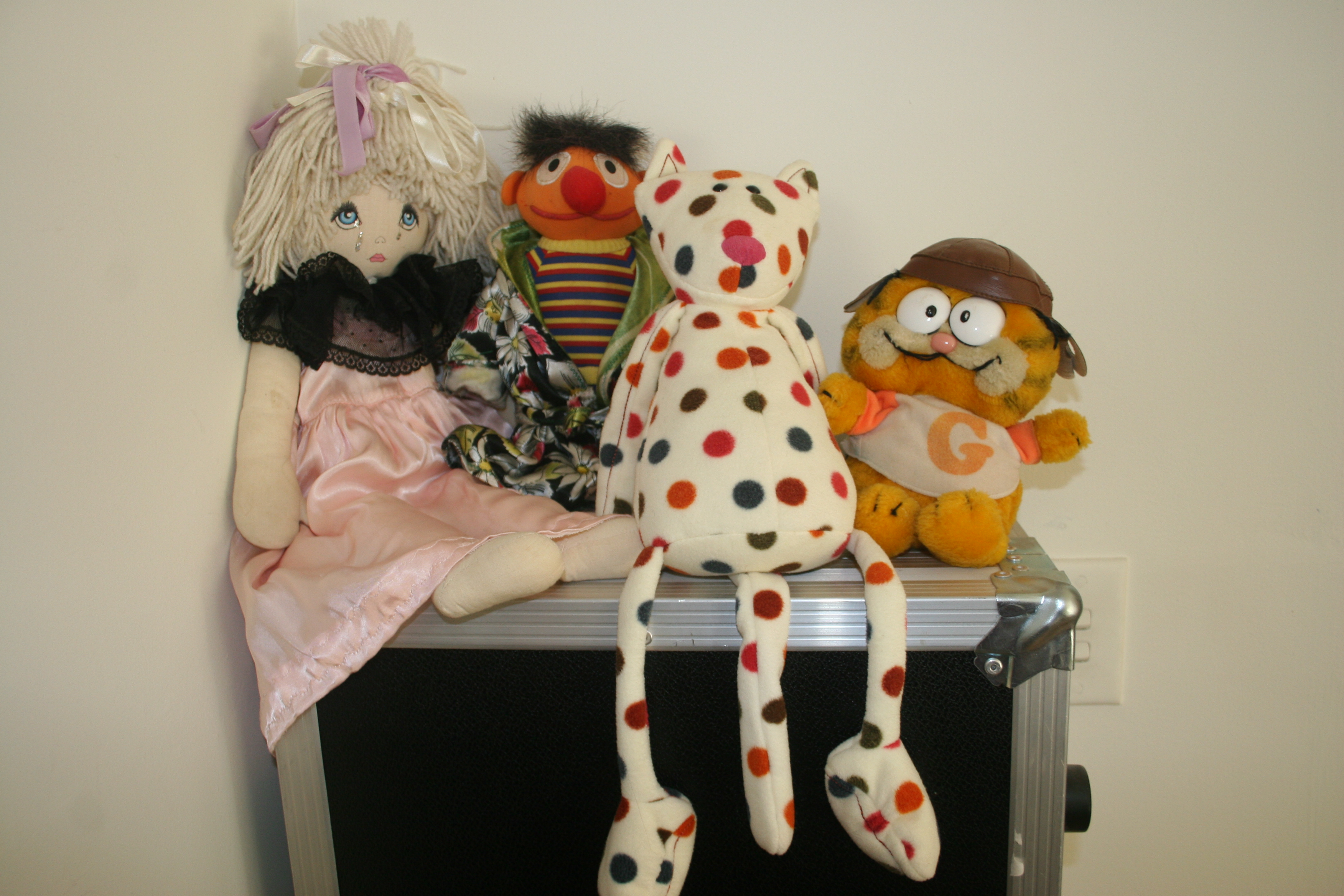The brain is a powerful thing. It’s our puppet-master, pulling our strings and leading us along a path we believe we have chosen for ourselves. The puppet-master is responding to a lifetime of familiarity, of intimate inner knowledge that helps it make decisions on our behalf – “This is what they want, this is where they wish to go, this is what they are interested in finding; I shall allow them to discover it. How exciting!”
And so the puppet becomes conditioned by the puppet-master until patterns emerge that are an integral part of the puppet’s life. The patterns appear with such frequency that they no longer resemble patterns at all but rather seamlessly blend into the everyday fabric of things. They merge so invisibly in fact, that the puppet takes them for reality and thinks to itself “This is what I want, this is where I wish to go, this is what I am interested in finding. Oh, look what I’ve discovered, how exciting!”
Now here’s a thought from Carlo Collodi, creator of that most famous marionette, Pinocchio: “Most unfortunately, in the lives of puppets there is always a ‘but’ that spoils everything.”
Big word, ‘but’. The great rejector; the delayed qualifier; the pauser of thoughts. And perhaps, the breaker of patterns? So, keeping faith with Collodi’s piece of wisdom, let’s introduce a ‘but’ to our puppet’s world.
The puppet dances gaily along, drinking coffee, sniffing flowers, going this way and that, moving blithely through their days until the morning they wake up and the coffee tastes more bitter than sweet and the once aromatic flowers no longer intrigue. The puppet thinks, “I normally love this shit but now it’s not doing it for me. What’s wrong with me? What’s wrong with the world? Why has my reality shifted?” For the answer the puppet surely must turn to the puppet-master. No problem. Except the puppet has no idea it hasn’t been controlling its own destiny the whole time – it isn’t even aware of the puppet-master’s existence. Or is it? Isn’t it possible that the moment life loses some of its lustre is the very moment the puppet begins to sense its lack of autonomy?
That moment, that ‘but’, is the door opening in the puppet’s consciousness. Suddenly the puppet is questioning everything and begins to recall encounters with other puppets who were strangely unnerving, challenging entities that had loose limbs and greater articulation. Rangy and dangerous, their glassy eyes spoke of experience, sadness and cynicism. Little singed pieces of string adorned their wrists and ankles, their bonds of servitude severed forever. The walking wounded of Puppetdom, cautionary tales against total separation from the puppet-masters, wandering indefinitely through the tangle of discarded strings and cross-pieces. Our puppet looks at them and wonders if there is another way.
As it sits down to ponder its options the puppet for the first time sees the almost invisible strings that have been guiding it for so long. Following a sudden impulse the puppet pulls on the strings sharply and is startled by a voice from above:
“Hey! Don’t do that, I pull the strings, not you!”
“Who the hell are you?” our friend replies.
“Who do you think?”
“God?”
“Don’t be ridiculous. Try again.”
The puppet refuses to look in the one corner that will reveal the identity of the voice from above knowing that if it does so, life will never be the same again. But the voice decides not to wait, knowing as it does that the puppet’s journey towards enlightenment has already begun.
“No idea? Really? Well I’ll just tell you then. I’m your operator.”
The puppet-master pulls a string so the puppet can scratch its confused head. The voice speaks again.
“It’ll be easier if I just show you. Close your eyes, I’m going to let you see inside the control room.”
The puppet does as it is told and is suddenly presented with a vision of a little room standing in the centre of which is the puppeteer, a relaxed, confident looking being who bears an uncanny resemblance to the puppet itself. Adorning the walls of the room are countless images documenting the puppet’s life from infancy through childhood and adolescence, early adulthood, education and jobs, friends and lovers, successes and failures, right up to the very moment the puppet yanked on its own strings mere moments before.
The puppet-master observes the dawning realisation and says delightedly “Pretty mind-blowing, eh! I’ve been here all along, right from the start. Leading and following, following and leading. I mainly just try and stop you from falling down and hurting yourself. Try to keep you away from fire and dogs. Anything that can kill you, really.
I know what you’re thinking. I mean, I really do know what you’re thinking. You’re thinking, ‘how?’ How do I decide what’s right for you, how do I decide where to go, who to talk to, what coffee to drink, which flowers to sniff.
Well, I’m just responding to you. I’m listening to your feelings. I wait to see how you feel about certain experiences and then I direct you back there, or not, depending on how you felt. You condition me, I condition you. We’re always on the same page. It’s pretty straightforward stuff.”
The puppet accepts the basic sense of this explanation but wonders then what lies at the root of things going a bit stale, a bit old? What erodes the certainty? The puppet-master begins to offer some thoughts on the matter when the puppet flashes opens its eyes and simply says “it’s because I’m ready for change.”
“Excellent!” responds the voice from above, “where do you want to go next? I don’t mind, I’m very reasonable.”
That’s where my puppet analogy ends for the moment. What I am trying to say is that the brain is incredibly powerful and operates on many levels. It houses our subconscious, that hazy realm of unspoken desires, of unarticulated thoughts, of memories and feelings that we hide from ourselves until we are ready to face them. The brain grasps all of this and simply directs us where we want to be directed. It makes concrete our certainties until such a time as we are ready for new information, new insight and a new page. It can only operate with the information we allow it access to. It operates only with our interests (or what we think are our interests) at heart. The heart of a brain. Is that a clumsy metaphor for emotional intelligence?
Fear not the puppet-master. The puppet-master is our friend!
Where is your puppet-master leading you? Or do you speak to each other at all?
Two more little things…
If you are interested in a more literal examination of puppetry and giving voice to the subconscious, you absolutely must see Nina Conti’s brilliant and thought-provoking Her Master’s Voice.
And finally, as a little follow-up to my post from a few weeks ago on the benefits of grieving here’s a link to a lovely piece in The New York Times that echoes many of the sentiments I expressed. I hope you like it.




Brilliant….. because its true.
Thanks Matt, I guess the old strings need to be looked at every now and then.
Nice one D. I love the other articles too. Keep it up. Great thoughts to share. Say hi.
Thanks Sean, lovely to hear from you. We really must try and get a sit down at some point. The next time you’re in Melbourne or I’m in Copenhagen… Greetings to your crew. Hope the music is flowing!
Well, you already know that I agree with you but I love the presentation. Very engaging and profound. Great post!
Love this…and the photo!
I recently decided to start therapy (again)…and it’s exhausting. But it’s also valuable to see what’s driving me (and in what directions.) Some of my patterns are making me crazy and I need an objective eye and ear to help me make sense of them. It’s a challenge to get out of one’s head long enough to discern the patterns but only once you see them can you change them.
Oh man, getting out of the head can be so challenging. Trying to get sufficient perspective to see yourself clearly so you can effect change? Demanding territory and sometimes professional guidance is the only solution. Good luck with that and thanks for your thoughts.
Hi Dara, finally catching up and long overdue. This post and your analogy are brilliant. Gives pause to the phrase “I think, therefore I am.” Like Caitlin, I am back in therapy too, and my therapist has been pointing out patterns that keep repeating themselves. How to get off the ‘hamster wheel’ is the question. My old rabbi used to say something like, “When you change your thoughts then you can change your beliefs, which can change your actions.” Do you think it’s possible?
Sometimes, I think that’s the only thing that’s possible! Our actions and beliefs are informed by our thinking and vice versa. The back and forth of this dynamic is very obvious when we are young and still believe we have stuff to learn. Sadly as adults we tend to abandon this humility and lock down our certainties. That’s when the trouble starts…